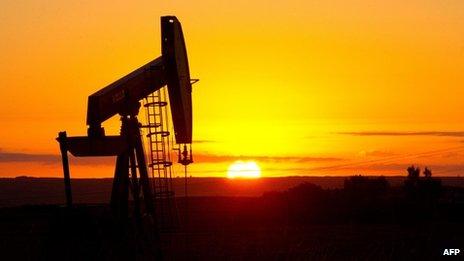BP forecasts slower growth in global energy demand
- Published

Global demand for energy will grow at a slower pace over the next two decades, a report from the oil giant BP predicts.
BP's Energy Outlook says energy demand will rise by 41% between now and 2035 - less than the 55% growth seen over the past 23 years.
It said increased fuel efficiency in developed economies was behind the predicted slowdown.
But demand from emerging economies is expected to continue to rise strongly.
Some 95% of the growth in global demand will come from developing countries, BP predicts, with China and India alone accounting for half the increase.
Christof Ruhl: BP expect 'enormous improvements' in energy efficiency
In contrast, energy demand in advanced economies in North America and Europe is expected to see only slow growth.
The firm's chief economist, Christof Ruhl, said the overall slowdown was a result of increased energy efficiency.
"Put simply, people are finding ways to use energy more efficiently because it saves them money," he said.
"This is also good for the environment - the less energy we use the less carbon we emit."
However, global carbon emissions are still expected to grow by 29% by 2035, and fossil fuels are expected to account for the bulk of energy use over the coming decades.
According to the report, oil, natural gas and coal are expected to account for more than 80% of energy use by 2035, with renewables and other sources accounting for the rest.
The boom in shale gas through fracking in the US is likely to have a significant impact.
Natural gas is the fastest-growing of the fossil fuels, and shale gas is expected to account for more than 20% of world gas production by 2035.
- Published8 January 2014
- Published12 August 2013
- Published15 July 2013
- Published12 June 2013